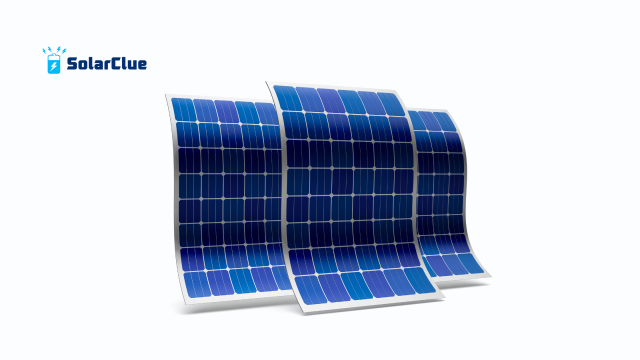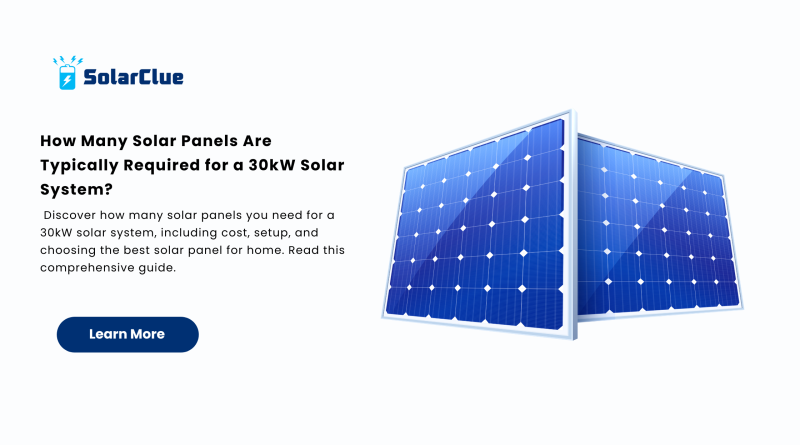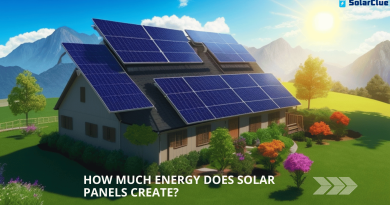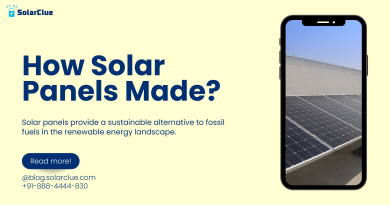How Many Solar Panels Are Typically Required for a 30kW Solar System?
Installing a 30kW solar system is a smart move for large homes, commercial buildings, or small industrial facilities looking to reduce their electricity bills and carbon footprint. But one of the first questions that comes up is: how many solar panels do you need for a 30kW solar system? In this post, we break it down in a clear, easy-to-understand way to help you make an informed decision.
Table of Contents
- 1 Understanding the Basics of Solar Panel Capacity
- 2 Number of Solar Panels Needed for a 30kW System
- 3 Space Requirements for a 30kW System
- 4 Choosing the Best Solar Panel for Your 30kW System
- 5 Benefits of Installing a 30kW Solar System
- 6 Cost of a 30kW Solar System in India
- 7 Maintenance and Longevity
- 8 Grid-Tied vs Off-Grid 30kW Systems
- 9 Government Subsidies and Incentives in India
- 10 Environmental Impact of a 30kW Solar Installation
- 11 Monitoring and Smart Control Features
- 12 Finding a Reliable Installer
- 13 Final Thoughts
- 14 FAQs
Understanding the Basics of Solar Panel Capacity
What is a 30kW Solar System?
A 30kW solar system refers to a solar power setup with a total capacity of 30 kilowatts, or 30,000 watts. This capacity represents the maximum power the system can produce under ideal sunlight conditions.
How Solar Panels Are Rated
Each solar panel has a rated output, commonly ranging from 350W to 550W for high-efficiency panels. To determine how many panels are needed, we divide the total system size by the wattage of each panel.
Formula: Panels Required = Total System Size / Panel Wattage
For example, if you’re using 500W panels: 30,000W / 500W = 60 solar panels
Number of Solar Panels Needed for a 30kW System
Panel Wattage Options and Panel Count
- Using 350W panels: 30,000 / 350 = ~86 panels
- Using 450W panels: 30,000 / 450 = ~67 panels
- Using 550W panels: 30,000 / 550 = ~55 panels
Impact of Efficiency on Panel Count
Higher efficiency panels reduce the number of units required, making them ideal if you have limited roof space.
Space Requirements for a 30kW System
Roof Space Needed
Each standard panel is about 1.6m x 1m. You’ll need roughly:
- With 86 panels (350W): ~138 square meters
- With 55 panels (550W): ~88 square meters
Orientation and Tilt
Proper orientation (preferably south-facing in India) and tilt improve energy production. Mounting systems can help achieve optimal angles.
Choosing the Best Solar Panel for Your 30kW System

Factors to Consider
- Efficiency
- Warranty
- Brand reliability
- Performance in Indian climate
Recommended Panels
Some of the best solar panels available in India include Tata Power Solar, Adani Solar, Vikram Solar, and Waaree. These brands are known for reliability and performance.
Benefits of Installing a 30kW Solar System
Solar Panel Benefits
- Reduce electricity bills significantly
- Low maintenance costs
- Long lifespan (25+ years)
- Increases property value
- Reduces carbon emissions
Suitable for Residential and Commercial Use
A solar panel for home might usually be 3kW to 10kW, but for larger residences or energy-hungry households, a 30kW system offers high savings potential.
Cost of a 30kW Solar System in India
Price Range
On average, a 30kW solar power system costs between ₹15 to ₹22 lakhs, depending on:
- Panel brand and efficiency
- Type of inverter (string vs micro)
- Structure and installation complexity
Return on Investment (ROI)
Most users recover their investment in 4-6 years through electricity bill savings.
Maintenance and Longevity
Maintenance Tips
- Clean panels every few weeks
- Annual professional checkups
- Monitor performance through apps or portals
Lifespan
Good quality panels last over 25 years, with inverters usually needing replacement after 10–15 years.
Grid-Tied vs Off-Grid 30kW Systems
Grid-Tied System
- No battery needed
- Excess energy fed to the grid
- Net metering benefits
Off-Grid System
- Requires batteries
- Higher initial cost
- Useful in remote areas
Government Subsidies and Incentives in India
Residential Subsidies
Although mostly for systems up to 10kW, some states may offer partial subsidies for larger setups. Always check local DISCOM policies.
Commercial Incentives
Businesses can claim Accelerated Depreciation and other tax benefits.
Environmental Impact of a 30kW Solar Installation
Green Energy Contribution
A 30kW system can reduce up to 40 tons of CO2 emissions annually.
Sustainability and Energy Independence
Contributes to a cleaner environment and reduces reliance on grid power.
Monitoring and Smart Control Features
Remote Monitoring
Modern inverters offer app-based control for real-time energy production insights.
Energy Optimization
Helps track consumption patterns and improve efficiency.
Finding a Reliable Installer
What to Look For
- MNRE-approved installer
- Strong customer reviews
- After-sales service
Recommended Source
You can find verified vendors at solarclue.com and get valuable installation tips from blog.solarclue.com.
Final Thoughts
A 30kW solar panel system is an excellent investment for energy-conscious consumers. Depending on panel wattage, you will need between 55 to 86 panels. Choosing the best solar panel for home or business use will ensure high efficiency and long-term savings. Don’t forget to evaluate available subsidies and consult with a trusted installer.
Visit solarclue.com today to explore the best options and blog.solarclue.com for expert insights!
FAQs
1. How much electricity will a 30kW solar system generate per day?
A 30kW system typically generates around 120–150 kWh per day, depending on location and weather.
2. Can a 30kW system power a commercial facility?
Yes, it’s ideal for small to mid-sized commercial buildings with moderate energy needs.
3. What is the payback period for a 30kW solar system in India?
Typically between 4–6 years, depending on usage and electricity rates.
4. Is battery storage necessary for a 30kW system?
Only if you opt for an off-grid setup. Grid-tied systems usually don’t require batteries.
5. How long does it take to install a 30kW solar system?
Installation usually takes 1 to 2 weeks, depending on site conditions and complexity.



